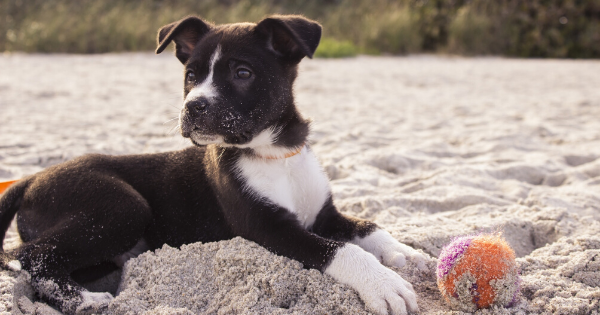
Summertime means sun, swimming, and lots of outdoor playtime with your furry friends. It can be a great time to bond with your pets. However, it also happens to pose higher risks in terms of skin and ear infections, injuries, and the possibility of heatstroke. To avoid these problems and make your pet’s summer season as fun and as safe as possible, here are 5 summer pet care tips to keep in mind:
Summer Pet Care Tips
1. Never Leave Your Pet Alone in a Parked Vehicle
Taking your pet with you on an outing can be exciting for both of you. But your pet wouldn’t enjoy being left in a parking lot as you make a quick run into the store. You may think it’s no big deal leaving your pet in the car for a few minutes, but it can take less than 10 minutes to develop heatstroke in cats and dogs inside the hot vehicle.
On a hot day, temperatures can climb to more than 110 degrees, which can cause heatstroke. Remember cracking a window or rolling it slightly won’t always keep your pet safe. So, you’re better off leaving your pet at home if they can’t come in with you when you run errands.
2. Allow Access to Large Quantities of Fresh, Clean Water
Dehydration in pets is a real possibility during the summer. Pets get dehydrated much quicker than humans do in the heat. In the summer, make sure your furry companion always has access to plenty of fresh, cool water. Both inside the house and outside; also bring a bottle for them when going on walks. You may also want to switch to wet food to help increase fluid intake. Because water warms up quickly on hot days, make sure you change your pet’s water often.
3. Keep Parasites Off – Safely
As temperatures rise, ticks, fleas, mosquitoes, and other summer insects are practically everywhere. These bugs carry heartworm, tapeworm, and diseases like Bartonella or Lyme, which can put your pet’s health at risk. How you try to get rid of these insects can also cause problems for your outdoor pet’s health.
A common cause of pet poisoning in the summer months is the improper application of pest control products. Using products meant for humans or medications intended for one animal on another may cause illness or death. Pesticides and fertilizers also pose health dangers for your pet. It’s important to ask your vet for the best ways to protect your pet from pests that are more prevalent during the summer months.
4. Keep Your Pet’s Paws Cool
During the summer months, pavement, wood, cement, and asphalt surfaces can become excruciatingly hot. As the sun beats down on these surfaces, they absorb the heat and can easily exceed 145 degrees. If you’re out in the sun with your pet, try to keep them off hot surfaces as paws can get burned. Additionally, their body temperature can increase rapidly because their body heat rises from the bottom up. Avoid going out in the middle of the day when the sun is directly above your head. If you have to walk and exercise your pet, do it in the morning or late evenings. But remember to check the surfaces first. Have water available and take plenty of breaks in the shade or grassy surfaces. Alternatively, you can invest in pet boots or socks to protect their paws from hot surfaces.
5. Practice Water Safety
While it’s fun to bring your pet to the pool, lake, or ocean to play and stay cool, you need to always keep a close eye on your furry companion when they’re in or near the water. Not all pets know how to swim, and even a strong swimmer might not know how to get out of a pool, or might get trapped by ropes or other obstacles. Also, strong rip tides and currents can easily sweep a dog out to sea. With this in mind, consider investing in a bright-colored life vest to ensure your pet stays visible and afloat in the event of an accident.
With thoughtful preparation and proper precautions, you and your pet can have a fun, comfortable, and healthy summer. For more summer pet care tips, book an appointment at Naples Coastal Animal Hospital or call us at (239) 500-0105.
